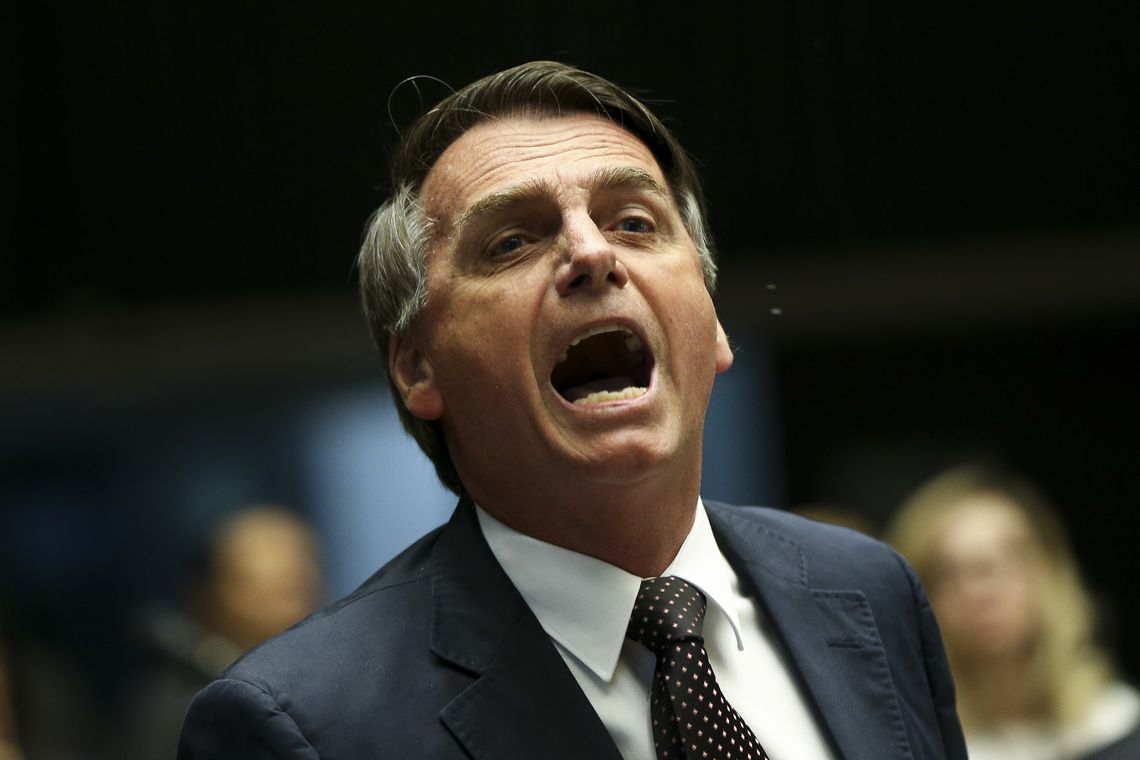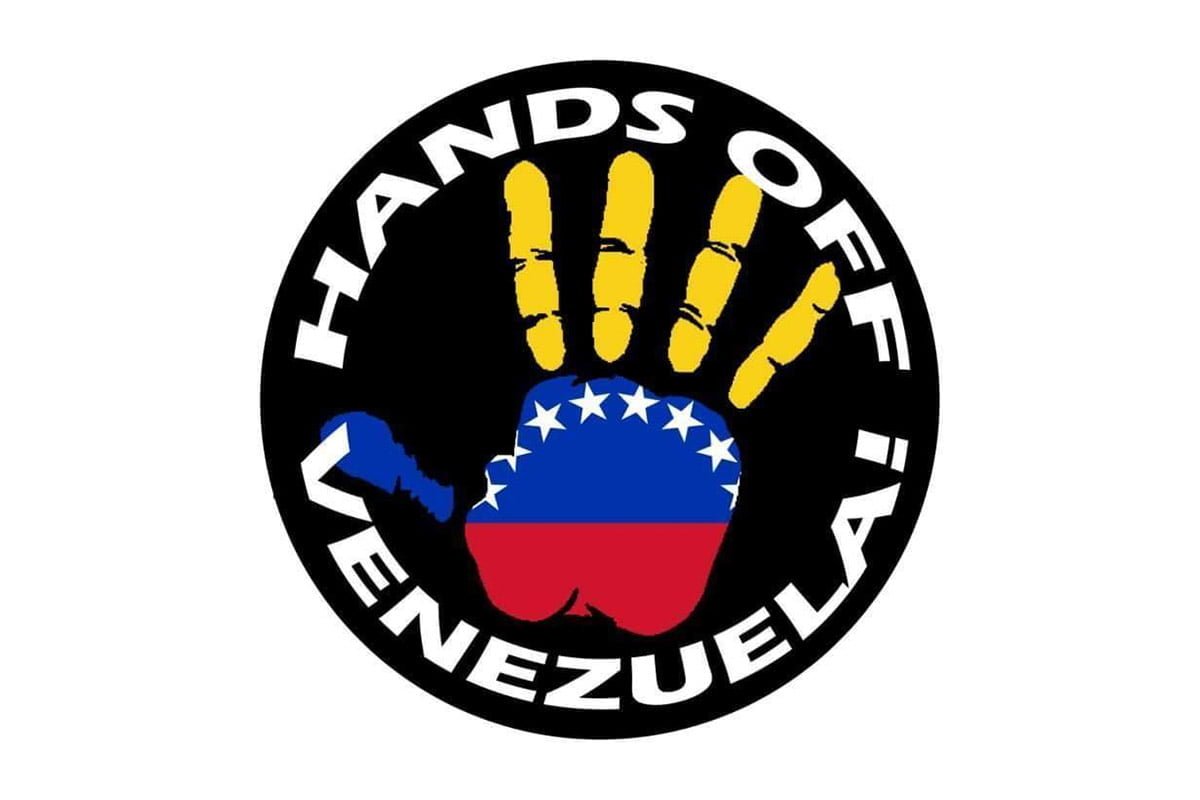This weekend sees the second round of the Brazilian presidential elections. The likely winner will be Bolsonaro, an arch-reactionary. The working class need to mobilise and organise to fight him head on.
Bolsonaro won in the first round of the Brazilian general elections and could possibly be the next president of the republic. He received support from about 33 percent of the 147 million voters.
Haddad (the PT – workers’ party – candidate) received support from about 21 percent of voters. Of the total voters, 27.32 percent (more than 40m) decided not to vote for any candidate. This is an expression of the feeling that runs through the streets.
The so-called “valid votes” counted by the Electoral Court produce the false impression that the winner has the majority of the population on his side.
The PSDB was swept away: it went from 54 deputies elected in 2014 to 29 now. The MDB fell from 66 to 34. The largest number of deputies remains with the PT, despite falling from 88 elected in 2010, to 69 in 2014, and now 56.
Bolsonaro’s PSL has gone from one to 52 deputies. The PSOL has grown from six to 10 deputies, despite failing to get its candidate anywhere near the presidency. Only 240 deputies were re-elected, out of a total of 513. With these results – and the expansion of political polarisation – a new situation has opened up in Brazil.
No representation
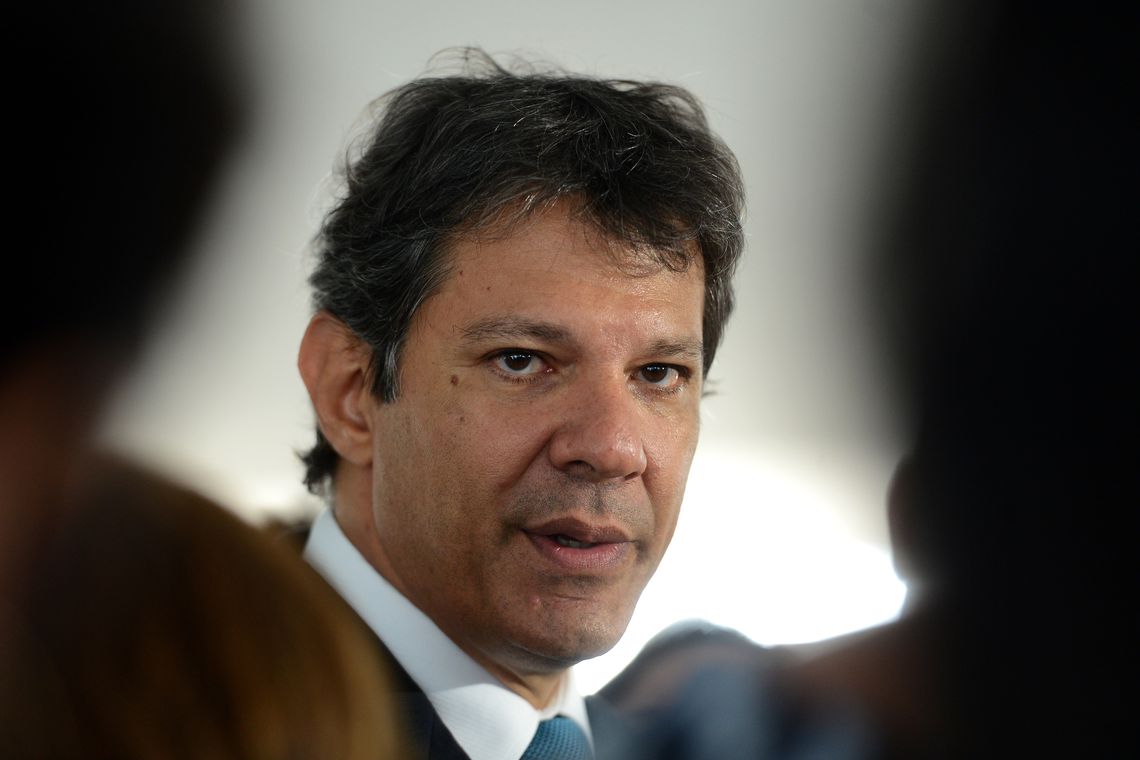 When the Marxists departed from the PT in 2015, we explained that the party had broken with its historic labour base and the youth. We also argued that the PSOL could become the alternative for the reconstruction of the political representation of the working class. After more than three years, the vote in this first round has confirmed our analysis of the PT. However, the PSOL is very far from being a mass labour party.
When the Marxists departed from the PT in 2015, we explained that the party had broken with its historic labour base and the youth. We also argued that the PSOL could become the alternative for the reconstruction of the political representation of the working class. After more than three years, the vote in this first round has confirmed our analysis of the PT. However, the PSOL is very far from being a mass labour party.
The PT lost in all proletarian centres, as it had lost in the municipal elections two years ago. It also lost votes in the working-class neighbourhoods of São Paulo, Rio de Janeiro, Minas Gerais, and, indeed, across all major cities more generally. It has become a party that survives more and more on the basis of remote areas, rather than being a party of workers and youth – a party that represents the proletariat. The electoral map, including the Northeast, shows this.
The PSOL, meanwhile, has increased its number of deputies, but is far from a mass party. Its presidential candidate, Boulos, had the worst candidate-to-president vote in party history. This says a lot about the “tactic” of trying to be the “other PT”, rather than defending socialism. If the party managed to have the best vote for any “left” deputy in São Paulo, this is due more to the bankruptcy of the PT than to confidence in the PSOL.
The political bankruptcy of the representation of the proletariat has led to what journalists and commentators have called the “conservative wave” or “rightist wave,” which almost saw Bolsonaro elected outright in the first round.
This is a critical situation. With the current policy of the PT, this scenario will hardly be reversed in the second round. The question for the Marxists, for socialists in general and for those who want to fight alongside the proletariat, is: what is the best way to fight Bolsonaro?
What does Bolsonaro represent?
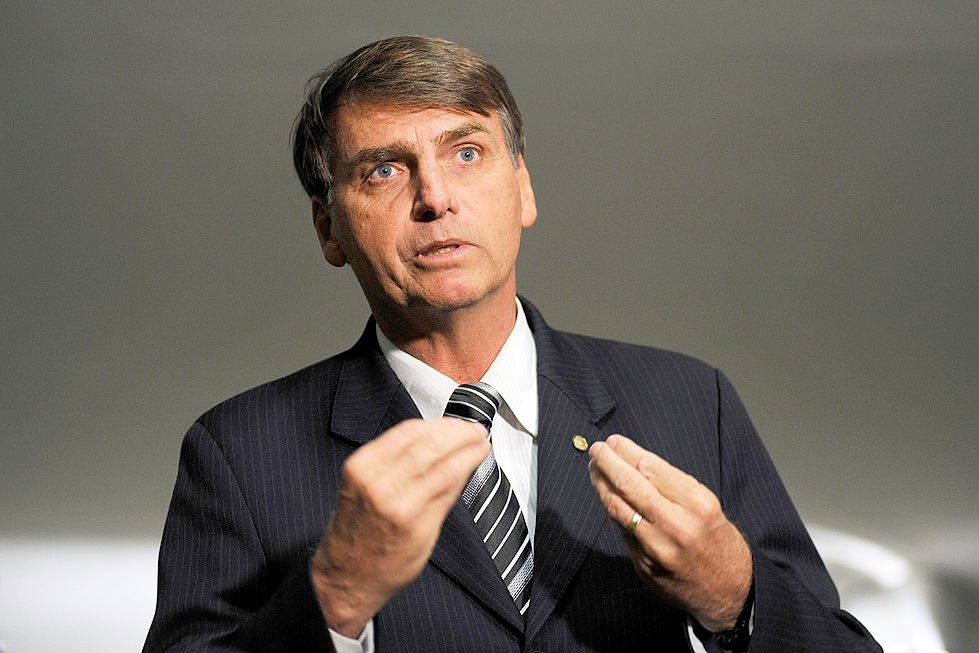 Situating Bolsonaro in an international context, it is inevitable to compare him with the growth of other extreme right-wing politicians and parties: Trump in the USA; Marine Le Pen in France; The League in Italy; the AfD in Germany and so on. At the same time, there are differences. For example, Trump defends protectionist measures and job creation within the United States. Bolsonaro and his economist, Paulo Guedes, defend an ultraliberal economic policy, of submission to the international market (with Bolsonaro even saluting the United States flag), privatisation of everything that is currently state-owned, the end of the labour rights that still exist – such as the ‘13th salary’ (an additional monthly wage given once a year), vacations, pensions, etc. Obviously, his demagoguery about arming the population against the ‘bad guys’ is a blatant lie, which he intends to circumvent by extending the license to kill that the police already have and encouraging repression against workers’ and youth organisations.
Situating Bolsonaro in an international context, it is inevitable to compare him with the growth of other extreme right-wing politicians and parties: Trump in the USA; Marine Le Pen in France; The League in Italy; the AfD in Germany and so on. At the same time, there are differences. For example, Trump defends protectionist measures and job creation within the United States. Bolsonaro and his economist, Paulo Guedes, defend an ultraliberal economic policy, of submission to the international market (with Bolsonaro even saluting the United States flag), privatisation of everything that is currently state-owned, the end of the labour rights that still exist – such as the ‘13th salary’ (an additional monthly wage given once a year), vacations, pensions, etc. Obviously, his demagoguery about arming the population against the ‘bad guys’ is a blatant lie, which he intends to circumvent by extending the license to kill that the police already have and encouraging repression against workers’ and youth organisations.
What is similar between the cited international cases and Bolsonaro is that they all ride an anti-establishment wave that runs through the base of society. Such phenomena have a common origin: the deep crisis of capitalism, which is the root of the international political instability and the demoralisation of the so-called ‘moderate’ formations of the ‘left’ and right, who took turns in power to administer this system.
Placing Bolsonaro within this global perspective helps us to understand that a good portion of his constituents are not made up of macho, racist, dictatorial, fascistic types – although he does enjoy the support of fascist groups. Amongst his voters are some proletarians, caught between the violence of the drug traffickers and the police, who long for the means to defend their families. There are also young men, angry with politics, who want to put someone in power who will simply burn the whole rotten edifice down. Additionally, there are, of course, petty-bourgeois elements, frightened by the crisis, who want to lower the cost of living with tax breaks and cuts to labour protections.
However, today there is no organised fascist party with a mass base capable of assembling battalions to attack workers’ organisations, even if the fascist groups feel more comfortable to act in this climate of social polarisation. There is no social basis for sustaining a brazen dictatorship. Supporters of the military dictatorship may make a lot of noise, but they are a minority.
The need for the bourgeoisie to promote an offensive of the state apparatus in the repression and criminalisation of the struggles of youth and workers is unquestionable. However, a dictatorship or a fascist regime would have to defeat the working class, which is currently disoriented but not defeated.
Bolsonaro is, in fact, the deformed and degenerate expression of the hatred of various social layers against the establishment and politicians. His policies include violent repression, destruction of public services, privatisations without limits and, therefore, will lead to further unemployment and suffering. Bolsonaro does not have a fascist party behind him, but he can certainly use the repressive instruments and levers of state power to impose his reactionary agenda. This cannot be ruled out, but it would require, first, the defeat and destruction of workers’ organisations to make them abandon even their own demands.
Moreover, Bolsonaro did not have (until recently) the support of the national and international big bourgeoisie. The most enthusiastic support he received in the first round was from the ultra-reactionary layers of rural Brazil, former police officers and the most degenerate evangelical sects. The sectors of the native bourgeoisie that have joined Bolsonaro are still marginal. The fact that bourgeois politicians are now supporting him in the second round represents an attempt to control Bolsonaro, while continuing to enjoy the spoils of exploitation.
Some left-wing activists – frightened about the idea of a coup, the imminence of fascism and dictatorship – will begin to see qualities that never existed in the PT and the governments of Lula and Dilma. Under the pressure of events, they are capitulating. Others cannot understand the difference between Bolsonaro on the extreme right, and the bourgeois-worker party (as Lenin characterised the Social Democracy) in the form of the PT. These are the sectarians who declare that it doesn’t matter whether the winner is Bolsonaro or Haddad, and they will spoil their ballots in the second round.
The current political situation is a minefield. The bourgeoisie knows that a wrong step could lead to explosions of struggles with a revolutionary character. The ghost of June 2013 still haunts them.
PT
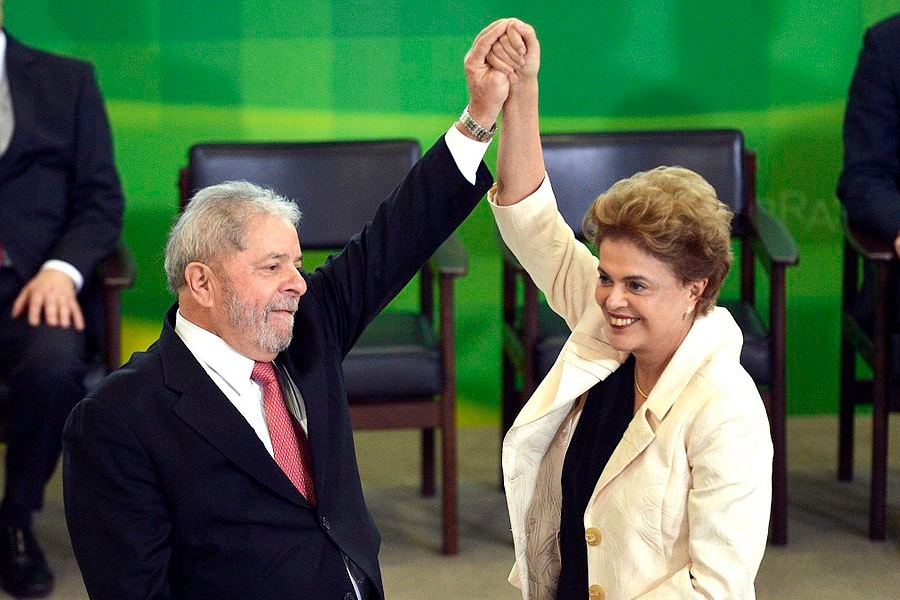 The PT and its governments betrayed the working class, made vicious attacks against it and submitted to the interests of international capital. Lula and other PT leaders politically destroyed a mass party, constructed by the working class, as a tool of struggle. The consequence has been a disorganisation of struggles and confusion that has culminated in the current situation.
The PT and its governments betrayed the working class, made vicious attacks against it and submitted to the interests of international capital. Lula and other PT leaders politically destroyed a mass party, constructed by the working class, as a tool of struggle. The consequence has been a disorganisation of struggles and confusion that has culminated in the current situation.
For this reason, the PT lost its base in the urban proletariat, the factories and the youth, and sustains its electoral base mainly on the basis of the past, when there was some economic growth, which allowed for more jobs, and greater consumption based on easy credit. The fact is that, today, the objective economic situation, both nationally and internationally, has changed: there is no room for manoeuvre. There is no choice but to attack the workers. The proletariat will face the challenge of reorganising, resisting and fighting; overcoming the obstacles that insist on blocking and deflecting its path.
PSOL
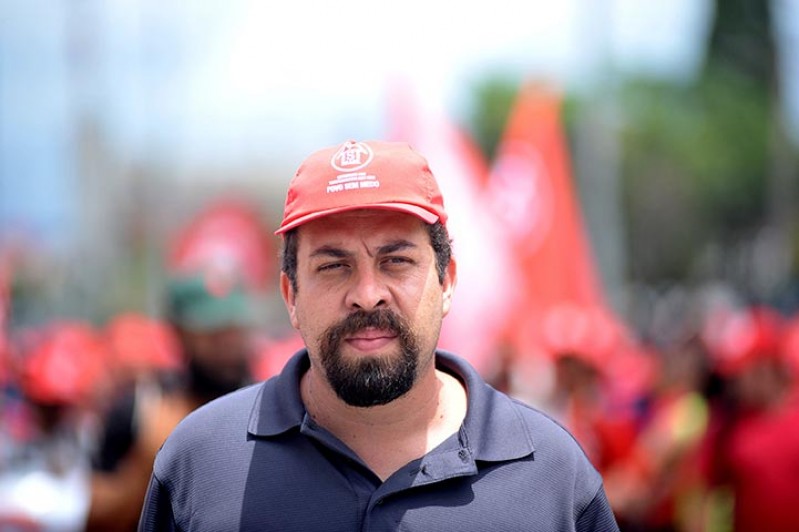 What was seen in these elections was a presidential candidate from the PSOL with reformist rhetoric and petty-bourgeois orientations, guided by electoral opportunism. This prevented the party from presenting itself as an alternative to the PT, that would stand against the current system, and serve as a point of organisational expression for the working class. Emblematic of their completely mistaken policy, from the point of view of the working class and youth, was the publication of the electoral programme: “50 Boulos recipes”. This was presented in the format of a cookbook, trying to imitate Pablo Iglesias, who published his programme in the format of an IKEA furniture catalogue. In his programme, Boulos praised and offered incentives for “entrepreneurship”: much like the PT saying it wants to develop capitalism.
What was seen in these elections was a presidential candidate from the PSOL with reformist rhetoric and petty-bourgeois orientations, guided by electoral opportunism. This prevented the party from presenting itself as an alternative to the PT, that would stand against the current system, and serve as a point of organisational expression for the working class. Emblematic of their completely mistaken policy, from the point of view of the working class and youth, was the publication of the electoral programme: “50 Boulos recipes”. This was presented in the format of a cookbook, trying to imitate Pablo Iglesias, who published his programme in the format of an IKEA furniture catalogue. In his programme, Boulos praised and offered incentives for “entrepreneurship”: much like the PT saying it wants to develop capitalism.
Faced with the political failure of his campaign, in the final stretch, Boulos declared himself “against the system”. But this was already useless given the 50 recipes that he had been defending, and lacking any means to differentiate himself from the PT and Lula.
All this prevented the PSOL from gaining the support of those who no longer believe in the current political system, in the way Podemos in Spain, France Insoumise, Corbyn in Britain and even Bernie Sanders in the USA have been able to do, despite their limitations.
Boulos’ candidacy and campaign were huge mistakes by the PSOL leadership. They annulled the party as a possible alternative, disarmed its militancy and resulted in an electoral regression that was enormous in relation to previous results. This was a campaign without identity, without personality and with a right-wing, reformist programme that even defended “entrepreneurship”. That is: encouraging youth and the working class down a path to success in capitalism. As a consequence, Boulos had the worst vote in the history of PSOL, which contrasts with the growth of the party’s congressional deputies.
The PSOL must distance itself from the policies that led to the fall of the PT or it cannot develop as a true socialist party. All efforts of the Marxist Left must be directed towards assisting in the construction of an independent, mass socialist party.
It was with these objectives in mind that the Marxist Left participated in the elections, focusing its campaigns on politically organising activists and supporters. It was in the spirit of class independence that we refused to touch a single cent of bourgeois state money offered through partisan and electoral funds. These campaigns were entirely funded by supporters, which guaranteed complete political independence.
Class struggle ahead
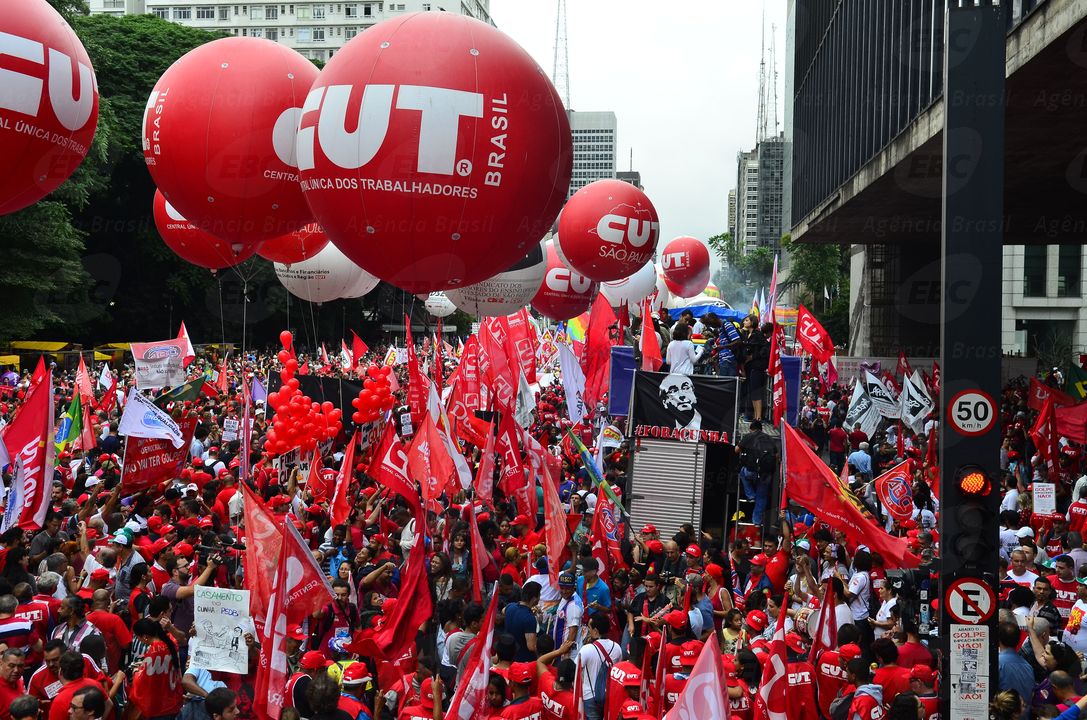 Nothing is decided yet. An open battle will commence to win the 27.32 percent who did not vote for anyone, as well as the voters of all the other candidates. In the second round, we will fight to defeat Bolsonaro.
Nothing is decided yet. An open battle will commence to win the 27.32 percent who did not vote for anyone, as well as the voters of all the other candidates. In the second round, we will fight to defeat Bolsonaro.
The Marxist Left invites all its supporters to vote against Bolsonaro in this second round of elections. We will vote for the PT, without any confidence in Haddad’s programme. The only objective is to bar Bolsonaro. Our struggle is to wipe out this whole rotten capitalist system and establish a real workers’ government, to expropriate the bosses and democratically plan the economy.
The Bolsheviks learned in August 1917, under the leadership of Lenin and Trotsky, to counter Kornilov’s counterrevolutionary coup, without giving any support to the Kerensky government, which repressed the Bolsheviks in July, arrested Trotsky, and forced Lenin into exile. In Germany, in the early 1930s, the Communist Party, under Stalin’s direction, refused to stand with the German Social-Democratic Party – whom they called “social fascists” – against Nazism. This criminal leftism allowed for the coming to power of Nazism and then the massacre of Communists and Social Democrats. Trotsky, in a 1932 letter on the situation in Germany, said:
“There are seven notes on the musical scale. The question of which of these notes is ‘better’: Do, Re or So, is a meaningless question. But the musician must know when to play and which notes to play. The abstract question of who is the lesser evil – Brüning or Hitler – also lacks any meaning. You need to know which key to play. Is that clear? For those who do not understand, let’s quote another example: if one of my enemies forces me to swallow small daily portions of poison, and another enemy, lurking in an alley, is about to shoot directly at me, then I will first take the hand of my second enemy, this will give me an opportunity to get rid of my first enemy. But that does not mean at all that the poison is a ‘lesser evil’ compared to the revolver.”
The issue in this second round is to “take the revolver” away from Bolsonaro and to continue the fight against the “poison”: the attacks that a PT government would also implement. Between the two possible options, it is best for the working class to reorganise its forces and prepare for future victories.
In all those states where there will be second-round elections between bourgeois parties for the position of state governors, the Marxist Left invites all its activists and supporters to spoil their ballots or abstain.
There is no defeat, no demoralisation, and no fascism around the corner. What exists is social polarisation, a failed regime, a lack of revolutionary leadership, and betrayal by the traditional leaders of the working class. However, there is also a mass of people willing to fight, who will do so when they find a channel to express their indignation. An intensification of the class struggle is on the horizon; and it is in the streets, factories, workplaces and schools that our enemies will have to be defeated.
The line of defeat and the line of victory
By Serge Goulart
Once the first round of the presidential elections was finished, Haddad and the PT (workers’ party) took off the red shirts they had used to revive melancholic PT supporters. Now they wear respectable suits with white shirts; they have changed their campaign symbols for the colours of the Brazilian flag (green, yellow and blue); removed Lula from campaign photographs; and hidden any hint of red.
They aim to present themselves candidates of “the political front in defence of democracy” – or to “unite all democrats,” as Haddad put it. In reality, this means uniting with Marina1, Ciro2, FHC3, and any available bourgeois who is frightened of Bolsonaro. An alliance with PMDB and PSDB4 is now their main objective.
Jacques Wagner – de facto head of the campaign in the second round – explained shamelessly that “it is a negative coincidence in history that, instead of being together, PT and PSDB have polarised with each other. These were the best forces that emerged in the democratic period.”
Ideological capitulation by reformism
The PSOL president, Juliano Medeiros, produced an explanation that reveals complete ideological capitulation:
“Now it is time for deconstruction, to show that [Bolsonaro] is a false nationalist and he is not against the system, rather, it is part of the system.”
That is, they (Haddad, Juliano, etc.), are the ‘true’ nationalists and, of course, with this line, they are all in favour of the system. These are unbelievable words for any ‘socialist’.
Not satisfied with what they did during their time in office, they now take a further step to the right by openly proposing a national unity government “to defeat Bolsonaro.” They destroyed the PT as a socialist party, and now, in order to win the elections, they do not mind transforming the proletariat and the youth into a tool to be used in the manoeuvres of the reactionary bourgeoisie. This is the same political line as Stalinism from the 1930s to today. It was that of the PCB5 until the 1990s and it is that of the PCdoB6 today.
Marxists have always fought for class independence and remain steadfast in this orientation today. It is the only policy for the ultimate victory of the working class. The politics of Haddad (PT) are suicidal, and led straight to the electoral defeat in the second round. Haddad, along with everything the voters have completely rejected (PSDB, PMDB, Rede, PDT, PSB etc.), will appear more than ever as “part of the system”. It is the “old politics” standing again, unable to understand the voice of the streets and people’s hatred for the system.
They did not understand why Bolsonaro was so popular in the first round, nor what that means. Just as they are completely incapable of understanding that only class independence and a determined struggle against capitalism (the “system”) is capable of massing and animating proletarian forces, and offering a perspective of changing people’s lives and actually fighting reaction. With their policy of “a front for democracy”, they are delivering the people into the hands of an ultra-reactionary adventurer.
Bourgeois democracy: rotten ripe for revolution
In 1848 in Germany, Engels wrote (in “Revolution and Counterrevolution in Germany”) that, at that time, the working class had no chance of raising its own forces and had to support the petty-bourgeois and small industrialists who were against feudalism: fighting against the past. It was the struggle of bourgeois democracy against feudal absolutism.
Engels explained, at the same time as he was writing the Communist Manifesto with Marx:
“The working-class movement itself never is independent, never is of an exclusively proletarian character until all the different factions of the middle class, and particularly its most progressive faction, the large manufacturers, have conquered political power, and remodelled the State according to their wants.
“The immediate needs and conditions of the movement were such that they did not permit the advancement of any special demand by the proletarian party… As long as the ground is not clean enough to allow independent action of the workers, as long as universal and direct suffrage is not established, as long as the 36 states continue to divide Germany into numerous pieces, what could the proletarian party do, other than to… fight alongside the small traders to acquire the rights that would enable them to later conduct their own struggle?
“Disorganised, brash, the workers were only awakening to political struggle, feeling only the simple instinct of their social position.”
Already in 1931 and 1933, in the same country, when Hitler came onto the scene to establish a fascist government, that time had passed. The political government of the bourgeoisie, the governments of the great industrialists and the bankers, had already been constituted. The bourgeoisie and its regime not only reigned but were rotting. The fascist state was already an expression of the era of imperialism and reaction. In 1930, the question posed was not the struggle for democracy, for the bourgeois republic, but a struggle for socialism. That is: it was a choice between the extreme regime of financial capital or proletarian revolution; a struggle between capitalism and proletarian revolution; between fascism, dictatorship, militarism or proletarian revolution.
It is bourgeois democracy and its state in the present stage of capitalism that led to Mussolini, Hitler, military dictatorships and, indeed, Bolsonaro. Only the struggle for the proletarian revolution can defend the working class and resolve this situation in a decisive manner.
In the struggle against fascism or any bourgeois government, the struggle for democratic freedoms is of interest to the proletariat insofar as it allows it to organise and mobilise for the socialist revolution, striking blows against reaction. The struggle for democratic freedoms is the struggle for revolution and never the defence of bourgeois democracy, of the reactionary, bourgeois “democratic state of law.” The defence of democratic freedoms is the defence of the interests of the working class in its struggle against capital.
Trotsky denounced Hitler as a reactionary at the service of finance capital. He was an enemy of the working class: an agent of capitalist reaction who sought to crush workers’ organisations and wage war to destroy the USSR. Trotsky never lost time denouncing Hitler’s ‘undemocratic’ positions.
Unity of workers; not “unity of democrats”
The policy of the PT leads nowhere. A violent confrontation between classes is being prepared. We do not need petitions signed in the name of democracy or the “unity of all democrats”. This is the line of electoral defeat now and of social and political defeat afterwards.
The responsibility of the PT’s leadership, and the leadership of the unions, is to organise a class struggle against Bolsonaro. But they are unable to do this. The task of the communists is to denounce this situation and to propose a united front of the working class against Bolsonaro and his accomplices, so that the workers and youth definitively separate themselves from the old capitalist system.
Without the working class and youth organised and willing to fight these people on the streets, they will increasingly gain confidence to intimidate and assault at will, because they see that they face no serious counter-reaction – no one is willing to stop them.
We’re seeing thuggish Bolsonaro supporters breaking Mariele’s7 plaque and boasting in public, threatening people on the street for wearing left-wing or anti-Bolsonaro t-shirts. And a Bolsonaro government will carry out an escalation of repression if the working class and its organisations do not face it seriously. Bolsonaro’s supporters are escalating their threats and actions because there is no organised fightback from the left, the labour movement or the youth. They have to be confronted with proletarian methods, in an organised fashion, in the trade unions, on the streets, in schools and in the workplaces.
The petty bourgeois and reformists in general are desperate “because democracy is in question.”
Of course it’s in question. It has long been called into question, precisely because of the advent of imperialism, the cowardice of the bourgeoisie, which fears the masses and, above all, because of the reformists who betrayed all the hopes of the working class and pushed the masses into a situation of hopelessness and hatred against all bourgeois parties and institutions.
This is the hour of proletarian revolution. The hour of democracy has long passed. The PT renounced democracy when it decided to rule for a privileged minority and deceive the people by handing out alms, as the Vatican does.
And the PT, in refusing to defend the democracy of the majority, sealed the fate of such a “democratic rule of law”. When government, the PT blocked a socialist way forward and convinced most of the masses that, in fact, such a democracy is only in the interests of the powerful, thus throwing a huge mass of the population into the arms of an ultra-reactionary adventurer.
The line of “unity of all democrats” or “all in defence of democracy” is the line of allying with much of the bourgeoisie, or at least attempting this, and appearing even more in the eyes of the masses as part of the “old order” that needs to be swept away.
The only political line capable of pushing back Bolsonaro and his accomplices is the proletarian antifascist front, the unity of the workers and the youth with proletarian methods of struggle, and raising all the demands and needs of the workers, pointing to capital and its agents as our mortal enemies.
The best example of this is the United Antifascist Front of 1934, which provoked the “flying away of the green chicken”: the dispersal and liquidation of integralist (fascist) organisations in Brazil.8
Those who accuse Bolsonaro of inciting hatred – and he certainly expresses class hatred very bluntly – forget fortuitously (or out of political blindness) that violence is the great midwife of history, and that under no circumstances can the line of ” peace and love” serve the interests of the proletariat. The working class has a right and a duty to feel “class hatred” against the capitalists, and especially against human waste like Bolsonaro.
Vote against Bolsonaro and build for the battles ahead
Our orientation is to explain and emphasise that only the proletarian battalions, organised and armed, can end this class war that the bourgeoisie and its brutish captains and generals have launched against us.
The line of Haddad and the PT is a further shift to the right, it is a line that will prevent it from winning the votes that the PT has already lost, and is totally useless as an attempt to provoke confusion and demoralisation amongst the ranks of the reactionary Bolsonaro groups.
This line of adaptation and defeat is the same as that of PSOL’s leadership in its statement on the second round, corroborated by the statements of the national president of PSOL.
We must organise in the unions, organise the youth and discuss how to prepare for the coming battles. At this time, this means fighting for a vote against Bolsonaro, by voting for Haddad and the PT, on 28 October.
The working class has not yet entered the struggle and it will have to do so. The union leaders and reformist politicians, contrary to what the eternally deluded think, will not organise nor enter into struggle. They will go even further to the right and will “demand” from Bolsonaro “open dialogue and negotiation”. They will not organise the struggle with proletarian methods in defence of workers and youth. They will try to negotiate while on their knees.
This task will increasingly be in the hands of the internationalist communists and of all those who, breaking with the bourgeoisie, capital and their parties, are genuinely determined to organise the revolutionary struggle of the proletariat in defence of its organisations, its conquests and the socialist revolution.
Socialism or barbarism! Obscurantist reaction and bourgeois repression or proletarian revolution!
Notes
[1] Marina Silva, leader of REDE (Sustainability Party), a former PT parlamentarian who broke with the party to the right and supported the bourgeois candidate against Dilma in the second round of the 2014 presidential election.
[2] Ciro Gomes, presidential candidate of the PDT.
[3] Fernando Henrique Cardoso, former president for the bourgeois PSDB.
[4] Brazil’s two main bourgeois parties.
[5] Brazilian Communist Party, in its current form created in the 1990s by those who opposed the liquidation of the party into the Socialist People’s Party.
[6] Communist Party of Brazil, founded in 1962 in opposition to Kruschev’s “destalinisation”. Currently in an alliance with the PT.
[7] Marielle France, PSOL city councillor in Rio de Janeiro, assassinated in March 2018, after having spoken against police extrajudicial killings of black youth in the favelas. A plaque in her memory was destroyed by a candidate of Bolsonaro’s party who boasted publicly about his “feat” on Facebook.
[8] On 7 October 1934, the AIB fascist organisation had called for a rally in Sao Paulo. The left and trade union organisations jointly mobilised to stop them and a battle ensued which resulted in seven deaths and scores of injured. The fascists were beaten and retreated. The fascists were wearing green shirts and their flight became known as “the flight of the green chickens”.

